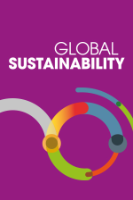Recent international disputes and a global pandemic have demonstrated how an overreliance on food trade and failure to effectively utilize and consume domestic food resources places a threat to the food security of sovereign nations. In the UK, a triple barrage of the coronavirus pandemic, Brexit, and the Ukraine war led to chaotic disruption in food trade and supply issues. This contributed to the fastest rise in food prices for 14 years, with a 13% increase in the 12 months to August 2022 (ONS, 2022).
Greater production and consumption of food on a domestic level can provide resilience against global events. The UK currently produces just 60% of the food it requires and exports part of this production; in 2021, the UK imported £48 billion of food and exported £21.4 billion (ONS, 2022). Imports and exports of fish and seafood are particularly large – fish and seafood are the most-traded commodity worldwide – and the UK imports 81% (718,000 tonnes) of the 887,000 tonnes it consumes, while exporting 70% of production (WWF, 2022). A good example of how increased domestic consumption could provide greater efficiencies and bolster food security in the UK is the bivalve mollusk industry, which produces species including the blue mussel (Mytilus edulis). In 2019, the UK produced 79,000 tonnes of bivalve mollusks, equivalent to 11% of UK fish and seafood consumption, yet exported 68,000 tonnes (86%) (Figure 1a) (FAO, 2022). With the onset of Brexit and the EU-UK Trade and Cooperation Agreement on January 1, 2021, the UK was unable to export most of its mollusk production, as UK water quality standards did not meet with import requirements to the EU, the UK's main market (Seafish, 2022). In addition, the UK's reliance on overseas depuration facilities in the Netherlands meant that following Brexit bivalve mollusks could not be cleaned. As a result, seafood was left rotting in shipyards and farmers were unable to sell their stock (SAGB, 2022).

Figure 1. Bivalve mollusk trade and consumption. Panel (a) shows bivalve mollusk production and exports in the UK between the years 2004 and 2019. Panel (b) shows annual bivalve mollusk consumption per capita across European nations in 2019 – the most recent year for which FAO data are available. Figure created using data from FAO (2022).
Bivalve mollusks are an incredibly micronutrient-rich food source, being one of the best sources of zinc, iron, selenium, and vitamins A and B12. Consuming mussels three times per week has been shown to improve the omega-3 index in UK adults, a key indicator of cardiovascular health (Carboni et al., Reference Carboni, Kaur, Pryce, McKee, Desbois, Dick, Galloway and Hamilton2019). Despite their value as a food, bivalve mollusk consumption in the UK currently stands at just 0.7 kg per capita, compared to 8 kg per capita in Portugal (Figure 1b) (FAO, 2022). Increasing the UK's domestic demand for mollusks is challenging but possible. Central to increasing demand would be the manufacture and retail of products that are genuinely attractive and convenient to consumers – with UK consumers citing poor taste and texture and inconvenient preparations as major reasons for not eating bivalve mollusks (Willer et al., Reference Willer, Nicholls and Aldridge2021). Including bivalve meat in place of fish within familiar, processed, value-added food products – such as fish fingers, cakes, and pies – may be the most effective means to do this (Willer et al., Reference Willer, Nicholls and Aldridge2021), with scope to use novel nano or microencapsulation technologies to mask any off-putting flavors (Madene et al., Reference Madene, Jacquot, Scher and Desobry2006; Willer & Aldridge, Reference Willer and Aldridge2020). In parallel, government would be wise to introduce taxes on problematic components of processed foods (e.g. refined sugars and vegetable oils) to encourage food manufacturers to improve the overall nutritional profile of their offering to help address the overweight and obesity crisis (Gulati & Misra, Reference Gulati and Misra2017).
Current global instability has brought into focus the need for greater self-sufficiency, whether it is for the dependable supply of energy or food. Considerable attention has been given to re-thinking national energy strategies, but building greater resilience into national food systems also deserves more consideration. The UK's bivalve mollusk exports provide just one case of the vulnerabilities resulting from an overreliance on food trade for food security –with vegetable oil and wheat supply disruption in the Ukraine war another key issue. This is exemplified by Somalia and Benin's 100% dependence on wheat imported from Ukraine and Russia, with the current war disrupting and even severing supply chains (Christie et al., Reference Christie, Aldridge, Gallardo, hÉigeartaigh, Petrovan and Sutherland2022; UN, 2022). Climatic change will likely intensify the disruption of global food systems and the next pandemic or drought may be just around the corner. Food trade is important, but overreliance in an increasingly volatile world seems unwise.
Data availability statement
All data are available in the manuscript.
Acknowledgements
We thank the University of Cambridge for supporting this research
Author contributions
D. F. W. and D. C. A. wrote the final manuscript and approved the manuscript before submission.
Funding statement
D. F. W. is supported by a Henslow Fellowship at Murray Edwards College, University of Cambridge. D. C. A. is supported by a Dawson Fellowship at St Catharine's College, Cambridge.
Competing interests
None.




